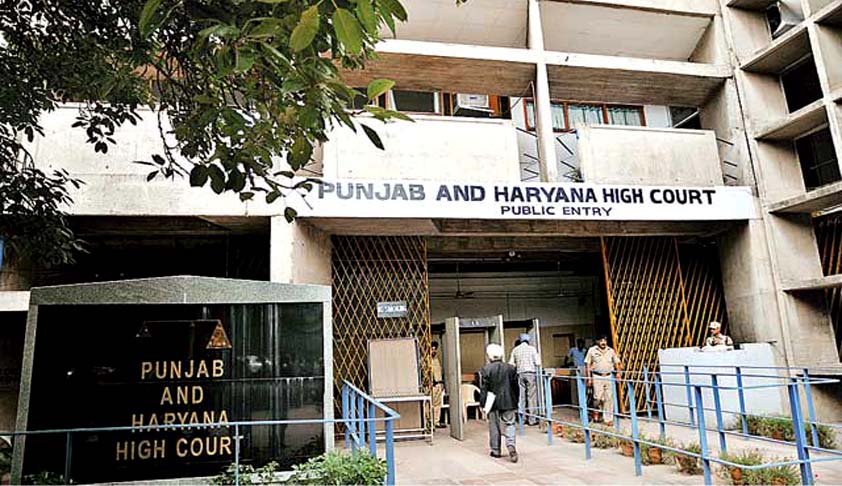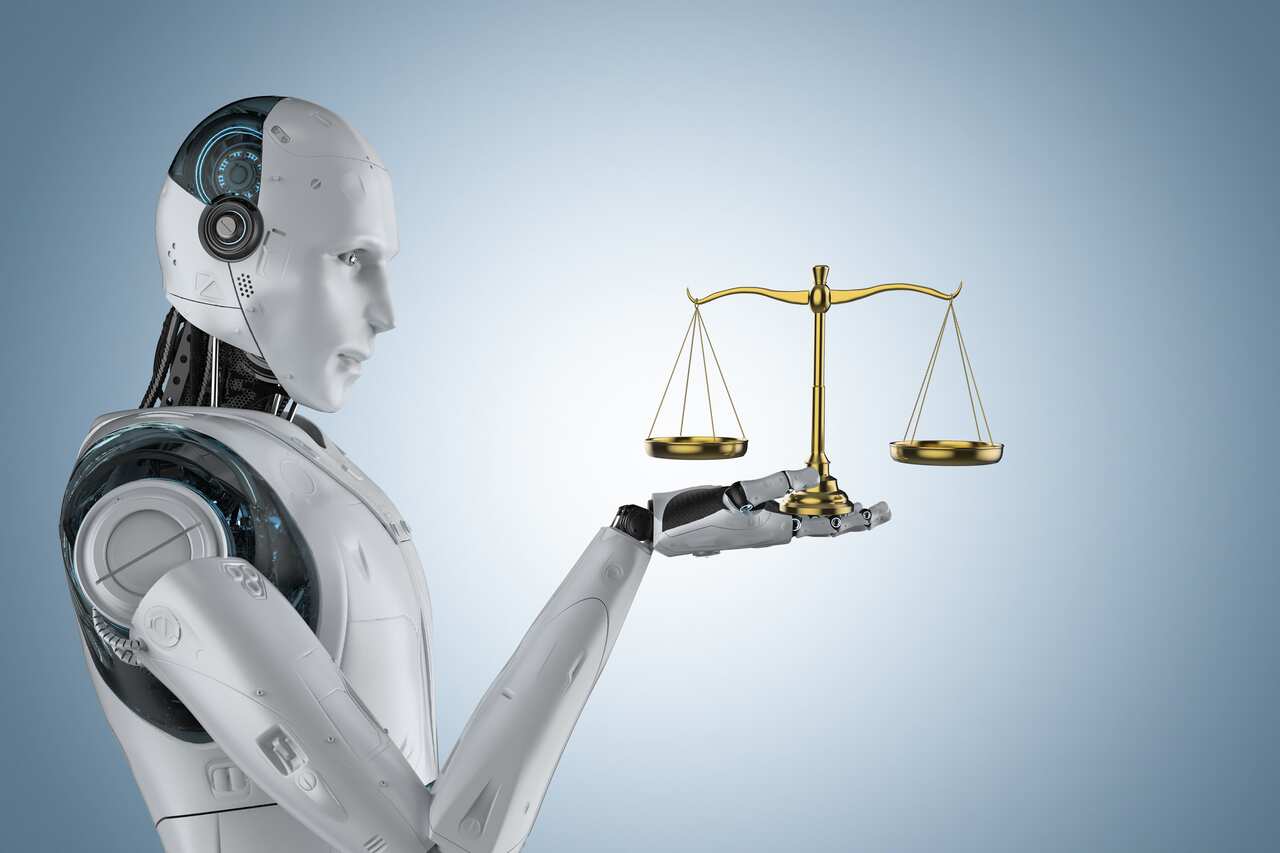The Punjab And Haryana High Court Makes The First Bail Decision Via Chat GPT.
In response to the court's use of Chat GPT, high court lawyer Saurav stated, "It is a positive step that will have both positive and negative consequences in the future. He also stated that artificial intelligence is not a danger to the work of attorneys but rather a tool ". In reacting to the high court verdict using Chat GPT, Nishadh Ahuja, who has been practicing in the HC for the last three years, stated that in the early stages, the use of Chat GPT may not be a danger to us and may be used as a tool to make our work simpler.

The Punjab and Haryana high court became the first in India on Tuesday to reject an accused’s bail application using GPT technology (artificial intelligence). In hearing the bail motion of an accused apprehended in June 2020 for alleged riots, criminal intimidation, murder, and criminal conspiracy, the court led by Anoop Chitkara asked the answer of Chat GPT (artificial intelligence). On the basis of his previous experiences and rulings, Justice Chitkara evaluated the response obtained from Chat GPT and denied the accused’s bail application.
The judge stated, “Inflicting death is cruel in itself, but when cruelty results in death, the situation changes. When a physical attack is perpetrated in a harsh manner, the bail restrictions alter as well “. The court further stated, “Any reference to Chat GPT and any observations expressed are simply meant to offer a larger picture on bail jurisprudence, where cruelty is a component.
In response to the court’s use of Chat GPT, high court lawyer Saurav stated, “It is a positive step that will have both positive and negative consequences in the future. He also stated that artificial intelligence is not a danger to the work of attorneys but rather a tool “. In reacting to the high court verdict using Chat GPT, Nishadh Ahuja, who has been practicing in the HC for the last three years, stated that in the early stages, the use of Chat GPT may not be a danger to us and may be used as a tool to make our work simpler.
Chiryanshu, another lawyer who has spent the last five years practicing in the Punjab Haryana High Court, stated that the usage of Chat GPT is still in its early phases. “Since Chat GPT and artificial intelligence are still in their early phases, it is too soon to assume that they will endanger the employment of a barrister. Giving examples, he stated that when computers were first introduced, people feared that they would eliminate their jobs; however, today, all work in the IT sector is done with computers, which is creating jobs for many people.
A US court issues judgment using ChatGPT.
Since the beginning of ChatGPT in November of last year, we have been able to follow its unexpected path. This AI tool can react to your most basic to complex questions about anything because it is an upgraded chatbot.
The bot even caught students’ interest by assisting them with their essays and solving math issues. Nonetheless, the announcement of this Colombian judge has generated a commotion in the AI community. Judge Juan Manuel Padilla of the Caribbean city of Cartagena has acknowledged that he wrote a recent court decision on a child’s medical treatment using Open AI’s chatbot ChatGPT.
Judge Padilla contacted ChatGPT for assistance while presiding over a case in which he had to determine whether or not an autistic kid from a low-income household was required to pay for medical and transportation costs. After speaking with ChatGPT about the issue, he ended up writing his decision in favor of the child and indicated that his medical plan should cover all costs because his parents couldn’t pay them.
The dispute-causing Padilla-ChatGPT discussion
The inclusion of Padilla-ChatGPT discussions made the judgement contentious even though it didn’t cause any trouble. The court records show Padilla specifically questioned, “Is an autistic youngster exempt from paying expenses for their therapy? When speaking with ChatGPT. “Yeah, this is right,” ChatGPT replied. Children in Colombia who have been diagnosed with autism are not required to pay for their therapy, according to the law. Making a recommendation to the judge that will benefit the child
The verdict sparked a debate over the legitimacy and application of AI in law, which drew harsh criticism even from Padilla’s coworkers. Nonetheless, the judge justified the technology, claiming that it may improve the efficiency of Colombia’s court system. He also stated that he used earlier decisions as instances to back up his choice.
Judge Padilla on ChatGPT
ChatGPT and similar technologies “may be beneficial to assist in the preparation of documents, but not with the objective of replacing judges,” according to Padilla. By raising questions about the application, he said, “We do not cease to be judges, thinking people. He described ChatGPT’s functionality as being “organised, basic, and systematic,” which can “improve reaction times” in the legal system.
Criticisms of the decision
There were several professional differences in this case. Prof. Juan David Gutierrez from Rosario University stated that judges urgently require training in digital literacy. According to Octavio Tejeiro, a judge on Colombia’s Supreme Court, “AI has sparked a moral panic in the legal profession, as many thought robots might replace judges. But he also offered his opinion on whether the general public will eventually embrace AI technology.
Using ChatGPT for judgement, he claimed, is unethical and deceptive since it is possible for them to make mistakes and suggest incorrect solutions. “It must be viewed as a tool that helps the judge develop his decision-making skills. We cannot let the tool take precedence over Tejeiro’s addition.
Legal consequences
According to informed replies, ChatGPT creates a tonne of information, which results in biased judgments and frequently fabricates information. Despite the fact that AI technologies let individuals work less, the legal and ethical aspects are still problematic due to issues with monitoring, privacy, prejudice or discrimination, and philosophical issues.
The public becomes conflicted as a result of these challenges and begins to doubt technology. The newest digital technologies are also causing people anxiety since they are a new source of inaccuracy and data breaches.
Although Colombia approved a law in 2022 that encourages public defenders to use technology to streamline their work, there is still ongoing discussion about whether or not artificial intelligence (AI) falls under existing legal categories or whether a new category with unique implications needs to be created.
edited and proofread by nikira sharma




